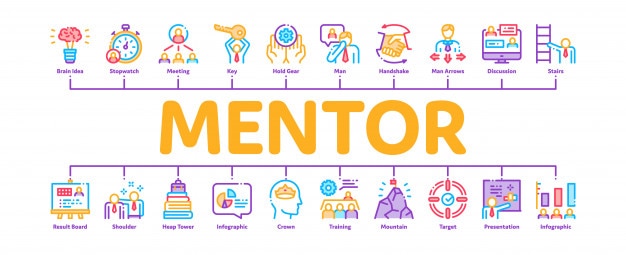Career progression is defined as the process of climbing the professional ladder in an individual’s work life. It is all about getting the most out of your career by finding new opportunities, facing professional challenges, being promoted, and merely moving forward step-by-step.
Table of Contents
What is Career Progression?
Some people believe that changing jobs for their professional advancement is career progression. It is not entirely correct. Some individuals stay in the same company for several years and continue to receive greater responsibilities, success, and satisfaction.
This is also career progression because your salary and benefits are improving and increasing. Simply put career progression is not only about finding a better job but also an increase in pay and responsibilities. It also includes leaving your job and starting your company.
Career progression is a lifelong evolution that is influenced by a lot of things. For instance, the jobs you hold, the experiences you gain both inside and outside the workplace, the training you receive, and the success you achieve at essential points in your career.
A successful career progression is significant for any person as aspirations of his whole life are dependent on it. Several factors and elements have a direct as well as indirect impact on career progression and can help to climb the ladder of success easily and quickly.
10 Steps of career progression
Career progression, in other words, outlines the route one should follow to reach the set goals. The steps involved in this process include
1. Identify your career goals
The first step involved in career progression is identifying your ideal career or dream job, your ultimate professional goal and what is the target you want to achieve. It involves understanding yourself by addressing some simple questions, for instance, what are the things you are good at, what are your top achievements, skills, know-how, qualities, strengths, and weakness.
Now identify your dream career by asking yourself what would you like to do for a living and what type of job you do not want to do at all, what are your goals? Will it fetch good pay, recognition, power, achievements, etc.?
Once you find the answers, your thought process will become clear. You can now start looking for a job that will align your personality and skills with the dream job.
2. Prepare for career progression
After creating a career plan, it is time to know how qualified are you for the job. Do you have the right qualification, education and skill set or do you need additional training or an update on your know-how to reach the next stage of your career?
If you still require additional knowledge and skill, this is the time to become proficient. Tailor your résumé based on the role you are looking for so that when you send it to employers and recruiters, it can highlight on the specifics you want him to see.
3. Define the ideal companies
This is an essential step in career progression as you want to join an organization where your career progression will be optimal.
Research the industry and find out about the companies you want to work for. Identify whether they have opportunities for advancement and can ultimately boost your career progression.
You want to work for a company that will offer you numerous opportunities for career progression and not somewhere where there is no scope for it.
4. Using connections
This is the time to use any connections if you have because connections do matter, and it can help you in landing a good job.
If not then have faith in your abilities and go through the usual channel to reach your target where the chances of career progression will be highest.
5. Set a timeline
You have landed your dream job and now is the time to set timelines and milestones so that you can be on the right track.
6. Utilize company programs
Most organizations have formal programs that will help employees in career progression. Understand and pursue them to make your way smooth and easy
7. Own your path
Each individual is different, and it is important to carve a career progression path that will suit your personal needs and fulfil your desires.
8. Take the blame and praise on the chin
It is essential to take responsibility of your actions, whether it is success or failure. Take the credit for your accomplishments and acknowledge mistakes have been made in case of adverse outcomes. The accountability will reflect positively and help in career progression
9. Up your ante
Do not take things lightly and assume that you will reach your goals in due time. This is the age of fierce competition, and you will have to up your game if you are interested in career progression at a good pace.
Use every opportunity that comes your way and show your superiors that you are ready to take on more responsibilities
10. Stop settling
Never settle and if you think that the current company is not able to help in career progression start looking for another job as this is the right time to move on.
How to improve career progression?
There are various ways in which a person can improve the efficiency of career progression, and some of them are listed below-
1. Mentoring
Mentoring is an important method to improve career progression. It is essential to find a mentor that will gel with you and prove a good fit. In mentoring both the mentor and the mentee set the expectations and standards of their association.
They have a flexible relationship that is less formal. Knowledge sharing is an essential aspect of mentoring in career progression where both gain mutually through their association. Mentor also helps the mentee in setting realistic goals and ensures that the mentee is following an effective planning process that will prove a blessing in career progression.
It is a mentor who can navigate you successfully through the blind corridors of your professional career. He offers advice that acts as a guiding force in facing challenges all along the way. His words prove a blessing during interview training, gaining managerial insights, and facing industry challenges.
2. Coaching
Coaching is often confused with mentoring as both are quite similar and often considered the sides of the same coin. There are also several dissimilarities between the two.
Coaching is a meaningful way to improve career progression and has helped quite a lot of people in their endeavours. It has a set structure and is more formal than mentoring. It is the coach that helps the employee in developing and improving abilities, knowledge and skills so that they can become self-sufficient.
They are the ones that set the course and standard of the association along with expectations and timings after considering a lot of factors.
3. Networking
Networking is considered one of the most effective ways to improve career progression as it helps a person in finding the opportunities to gain visibility and connect with people who can help him in his endeavors.
The term networking is about the exchange of information and establishing relationships that will be mutually beneficial for the involved parties. It can be with people within the organization, in your industry and even outside your field of interest.
There are lots of ways for networking successfully. It includes attending events, conference, seminars, receptions, trade shows, building relationships through online channels, and even taking someone out for lunch or drinks.
Networking opportunities are all around you every day, just grasp them quickly. Experts in career progression believe that networking has been very successful and will pay dividends throughout your career if you can maintain that relationship.
It also helps in improving your skill set, meet prospective mentors, keep a finger on the job market, stay connected with the latest trends and gain access to essential resources that will improve and foster career progression.
4. Training and Development
Another method of improving career progression is through training and development programs. The program includes a training course that will help in upgrading the existing skills and in some cases developing a new skill or area of expertise.
There are different ways of training, for instance, team exercises, group discussions, lectures, instructional manuals, video, and hands-on examples. An employee can also gain the necessary experience and knowledge by shadowing a colleague or a peer who is an expert in that field or it could be through online courses that are readily available to improve your knowledge.
Another critical option for training to improve career progression is by hiring an expert who will offer the necessary training in a formal manner.
5. Ask about it
One of the most straightforward ways to improve career progression is by asking about it. Speak about it with the HR department, manager, immediate superior or a peer so that you can get a fair idea about the path that needs to be followed.
Remember that by being curious and asking directly about your career progression prospects, you are showing an enthusiastic approach. It reflects your keenness to move forward and climb the ladder of success.
An organization that looks to the future will encourage your career progression and offer suitable options so that you can prove yourself.
Advantages
The advantages of career progression are as follows-
- Career progression opportunities give a sense of purpose to the employee.
- It improves your earning prospects
- It helps the employee to become engaged
- It boosts job satisfaction and morale because he knows that he is on the right track in his professional life
- It boosts the productivity of an employee
- It helps to gain a broader skillset
- Career progression gives the employee new opportunities to discover interests within the company that will help him to move forward and achieve better results in his professional life
- It is a journey that will keep the employees busy. He will not have enough time to think about unnecessary things and get depressed
- It helps in logical job transitions
- It boosts your decision-making skills
- Career progression assist the employee in achieving financial growth
- Offering career progression opportunities for an employee are essential for an employer as it will help the organization in employee retention. This will save them money, time, and effort to hire and groom a new employee
Conclusion
Career progression in simple words is referred to the journey which a person undertakes in his lifetime to achieve his desired goals. It is the process of making progress to something better and not the end journey or reaching your goals and objectives.
Liked this post? Check out the complete series on Careers

